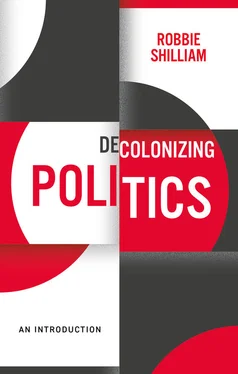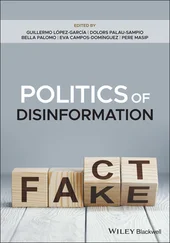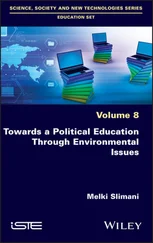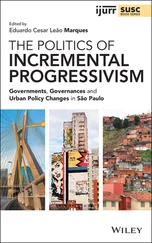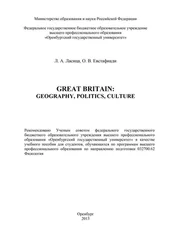Let me introduce you to this maneuver by talking about “canons.” The idea of a canon is at root a religious one, referring to a selection of scriptures considered to be true and sacred. When applied to academia, a canon refers to the set of authors and texts that are supposed to faithfully induct the student into the discipline. All disciplines have canons and political science is no exception. The so-called father of political science, Aristotle, often sits at the head of the canon.
But canons necessarily limit our understandings and imaginations. A critical evaluation of works within the canon – a task we have just undertaken with Aristotle – is necessary but not sufficient for the decolonizing mission. We must also try to glean the margins of power. We must imagine, at least in principle, that those who dwell in these marginalized positions have traditions of thought that are generally edifying. Why would we not imagine this to be the case, at least in principle?
That said, it’s not always easy to find an author, a collective, or a movement that directly corresponds with or speaks back to the canon. The reason is simple but disturbing. Imperial centers talk to colonial margins but rarely listen back to them: that is broadly the case in academia as well as politics proper. And, because centers rarely listen back, you will not usually find colonial voices articulating themselves in the repositories and archives of politics, that is, the mainstream recorded history of politics.
Chinua Achebe, famous Nigerian novelist, once recanted an Igbo proverb when recalling why he became a writer: “until the lions have their own historians, the history of the hunt will always glorify the hunter” (Brooks 1994). Think for instance of the anti-slavery movement that Aristotle was writing against. There are hardly any records of it. What do I do, then: just let the slave masters tell the story? Pretend as if no slave has ever contested or had a thought about her slavery? No. I have to creatively seek out resonances, perhaps in unlikely places, and bring together the responses that I can find. The Mande Hunters can illuminate the issue of natural slavery, and they do not need to have read Aristotle to do so.
With this third maneuver we do not merely illustrate the ways in which some of the key arguments in political science have evolved with colonial logics and meanings. We also move those arguments into marginal locations – intellectually, conceptually, and/or empirically. We could even imagine that these marginal locations connect to each other, despite the wishes of the imperial center.
Thinking in this audacious manner allows us to place scholarly debates within broader constellations of logic and meaning. We gain a fuller understanding of the same issues. The master presumed he never had to know what the slave was thinking. After all, everyone told him that slaves couldn’t think. But, in order to survive creatively, the slave had to know what she thought and how the master thought. Who would you turn to for an explanation of slavery: him or her? Put another way, studying only the center does not reveal to you the margins; but studying from the margins can inform you of the margins, the center, and their relationality; that is, the larger constellation of political activity (see Davis and Fido 1990).
Together, these three maneuvers are of what I take the project of decolonizing politics to consist. In what follows, I recontextualize, reconceptualize, and reimagine four popular subfields of political science: political theory, political behavior, comparative politics, and international relations. In each chapter I focus on a key theme associated with each subfield: universal rights in political theory, citizenship in political behavior, development in comparative politics, and war and peace in international relations. In the next section, I’ll give you a short description of the aims of each chapter. But, before that, I want to make some general points about the aims and purposes of the book, as well as to come clean with at least one of its limitations.
It is absolutely not the case that all politics in the world have a colonial heritage or logic. This is not the claim of the book. But I do maintain that political science is formed as a discipline from imperial heritages and with abiding colonial logics. In short, the purpose of this book is to decolonize the academic study of politics, not politics per se. That said, you’ll see by the end of the book that to pursue such a decolonization of knowledge requires us to commit to broader programs of global justice outside of the academy, narrowly conceived.
In pursuit of this decolonizing “impulse” I have selected various thinkers and themes not as true and full representations of every subfield: that would be impossible. Rather, I’ve picked them because I think they bring the imperial heritages and colonial logics of the discipline into sharp relief; and I’ve selected their interlocutors from the margins in the way described above – imaginatively. In other words, don’t read this book as if it is the authoritative account of political science. Read it to gain some practice in the art of decolonizing knowledge.
On this note, I want to justify to you the style of the book’s prose. Often, social science is written in the third person – as an impersonal register of the outsider looking in. I’m hoping you’ll have caught the problem with this register before you’ve even finished this sentence. Remember, we are involved in an uncanny enterprise. Uncanny enterprises require intimacy. You and I are taking this journey together.
Journeys are best represented as stories. Telling stories usually means, in some way, dwelling in the past. Most of the material that we’ll work through is historical – from the fifteenth century up to the 1980s. But this is not a history book. We are using this material to recontextualize, reconceptualize, and reimagine the study of politics. I’ve picked stories that are heavily implicated in the formation of political science’s subfields and which help to highlight the colonial logics that are integral to these formations. I’ve also picked stories that just as much bring to life different logics that contest these formations – in the academy and beyond. I’ll provide some suggestions along the way, but it’s going to be up to you to think about how all these stories resonate in the present. That’s the “decolonizing” work that you’ll have to do.
At this point you might be wondering if this book is a guide, a survey, or a series of provocations? Often, books that offer broad introductions into a field of study are presented in survey form, as non-committed and impartial engagements with various authors, issues, and arguments. I understand why. The writer does not want to tell you what to think but rather to guide you through the options. Once again, though, that strategy might not best fit a decolonizing agenda.
Stories always invoke some kind of travel – whether that be physical, intellectual, or ethical. We will be traveling from the center to the margins, from the imperial heartlands to the peripheral colonies, from the arenas of citizens to the spaces of migrants, from the offices of the powerful to the movements of the oppressed, and across physical, psychical, and social borders. Now, in order to journey, you have to commit somewhat to those whom you travel with, even if they annoy you. This commitment might sometimes mean taking their side, for a while at least. It’s fine, by the way, to be critical of your traveling companions. I’m not trying to convert you or recruit you to anything. I’m simply suggesting: it’s the journey that’s critically instructive, not the destination.
Now for the limitations. I’m sure you’ll find a number. But let me suggest one, right away. Most of the spaces that we will move in and through are Anglophone ones, that is, relics of Britain’s 450-year empire: beginning with the plantations of Ireland in the 1550s and continuing to this day with the struggle over possession of Diego Garcia in the Indian Ocean. More than that, when we do venture into non-Anglophone territory (for instance, French Algeria), it is to engage with a thinker who is extremely well known in the English-speaking academy (i.e. Frantz Fanon). There is both a centering of English-speaking sources in the global academy, and beyond that, a centering of colonizer (European) languages. You should think about how we might need to decenter this colonial language preference in decolonizing work. That is Ngũgĩ wa Thiong’o famous message in Decolonising the Mind (1986).
Читать дальше
